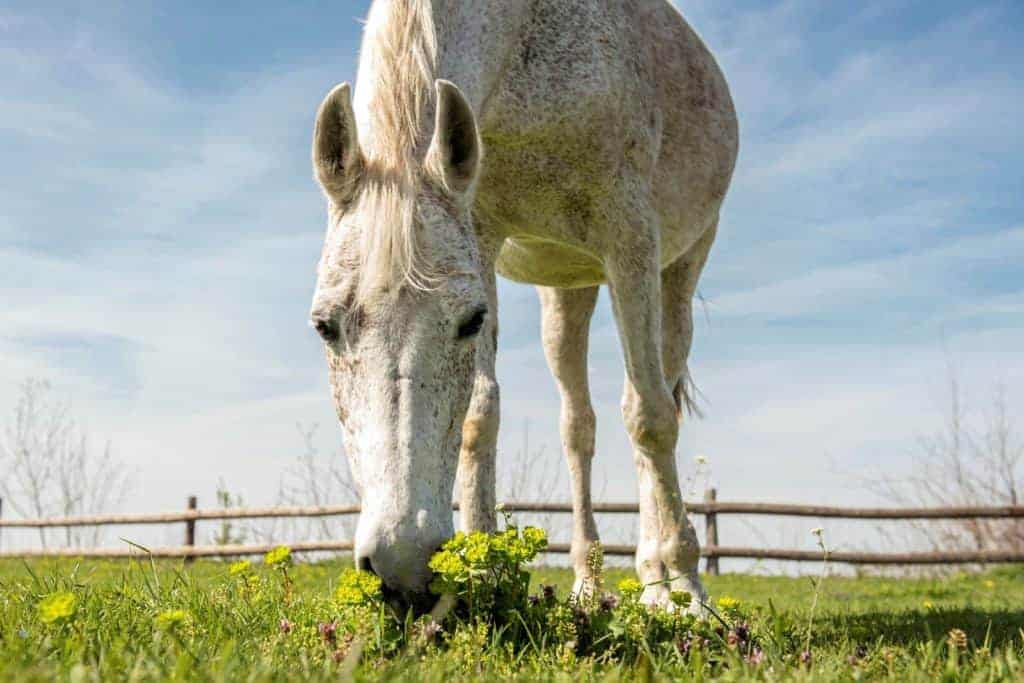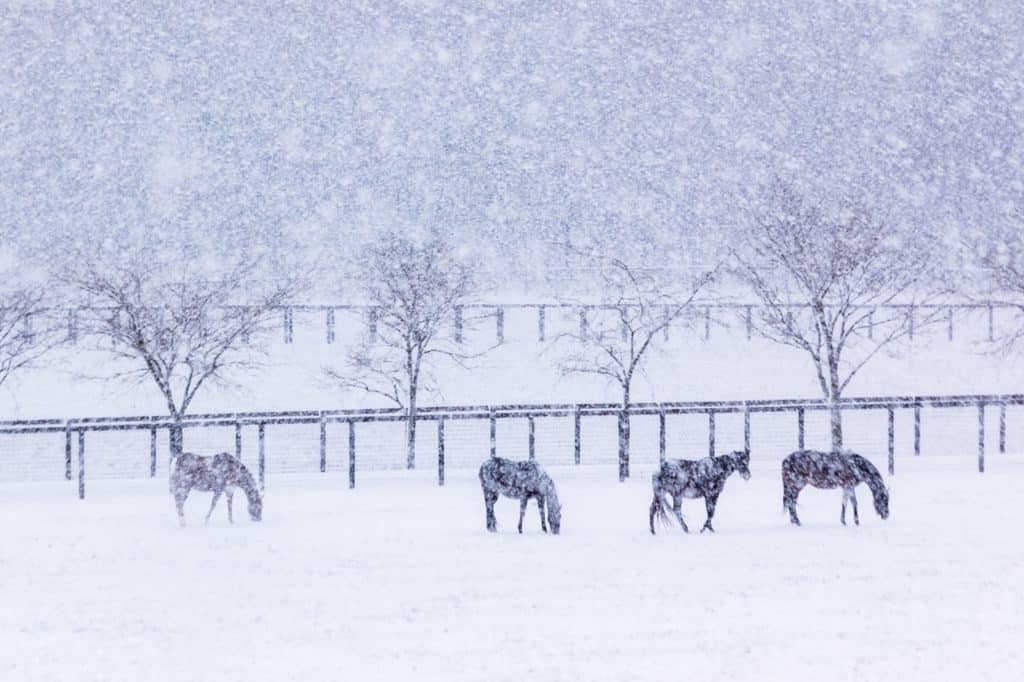
Alternative Fiber Sources for Horses
Need to stretch your hay supply? Consider adding hay cubes, complete feeds, or forage byproducts.

Need to stretch your hay supply? Consider adding hay cubes, complete feeds, or forage byproducts.

Learn what distinguishes PPID, EMS, and IR from each other and how to care for “metabolic” horses.

Learn more about nutrition’s role in the development and management of equine endocrine disorders and how you can reduce your horse’s risk of developing a secondary disease.

In regions with mild climates, proper pasture management can allow horses to graze throughout the year.

Researchers know diet, breed, high colonic pH levels, and water supply mineral content can impact enterolith formation, but how trace minerals affect the process is less well-understood.

Our nutritionist weighs whether steaming or soaking hay is more effective at reducing NSC levels for horses with insulin resistance.

A mature horse that is idle or lightly exercised requires 100 mg of copper per day. Here’s why.

Good pasture management begins with maintaining soil fertility to promote the growth of desirable grasses.

Here are a few ways to make feeding time more efficient without sacrificing your horse’s dietary balance.

Activated charcoal administered via a nasogastric tube might help stop the intoxication process that leads to death.

The domains focus on horses’ nutrition, environment, health, behavior, and mental experiences.

Learn how to make sure your horse has a clean, safe drink of water when he needs it, with Dr. Roberta Dwyer of the University of Kentucky’s Gluck Equine Research Center.

While scales are most accurate, they’re not always accessible. Here are some other weight estimation techniques to try.

Dehydration, fitness, and breeding can lead to specific challenges when treating colicky horses during endurance rides.

The conference focuses on teaching ways to maximize alfalfa production and utilization.

Ensure horses and livestock have adequate shelter, water, dry bedding, and feed to make it through the cold spell.
Stay on top of the most recent Horse Health news with
"*" indicates required fields